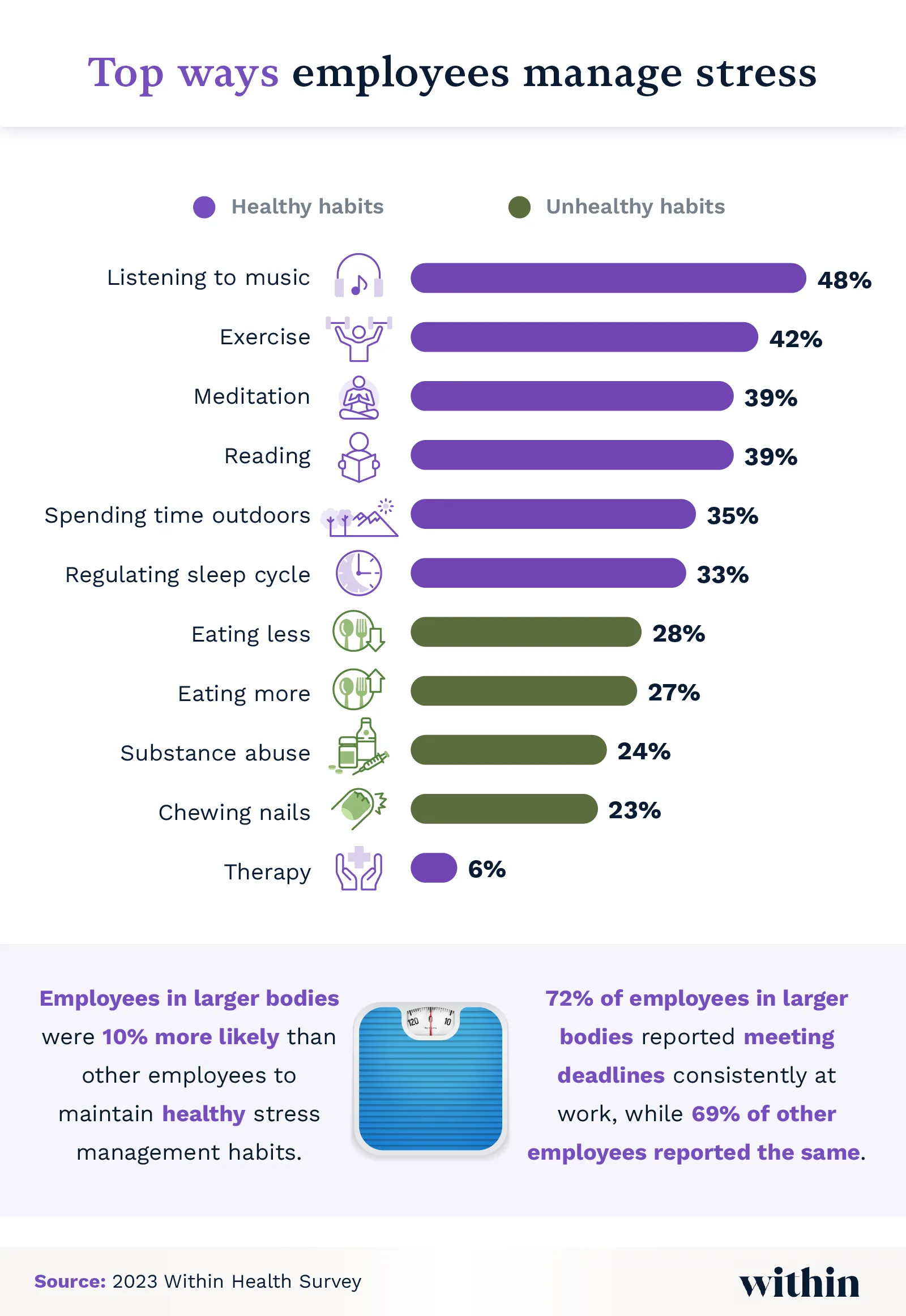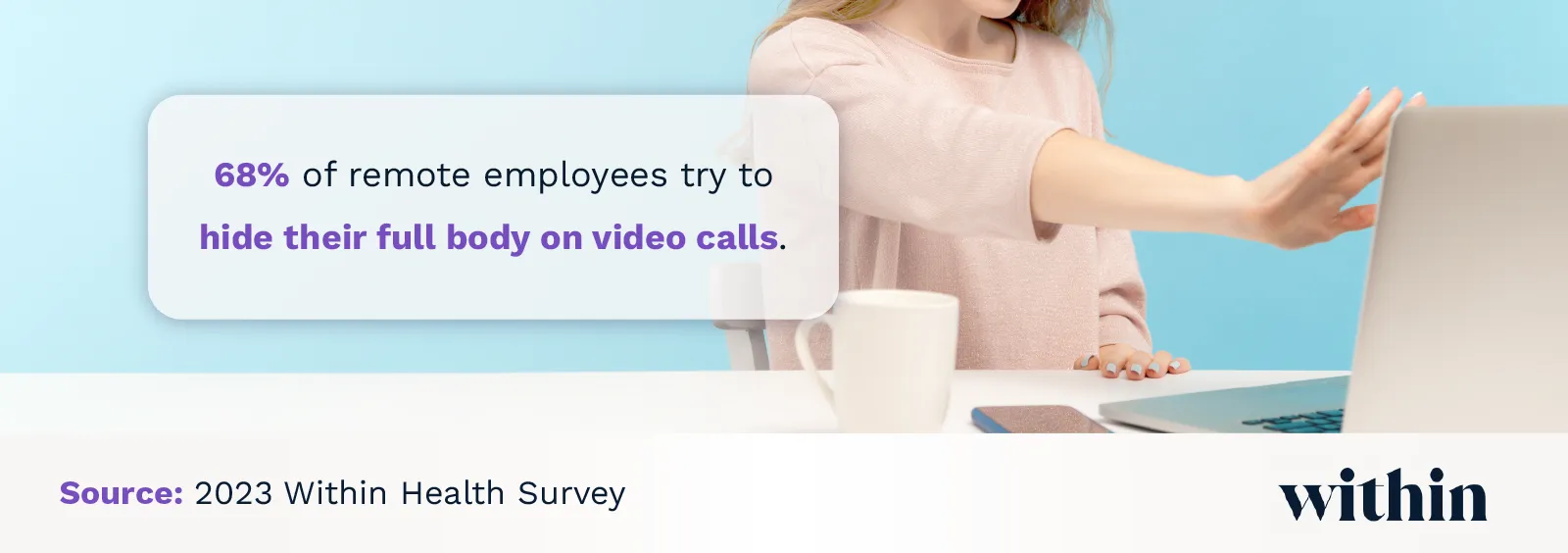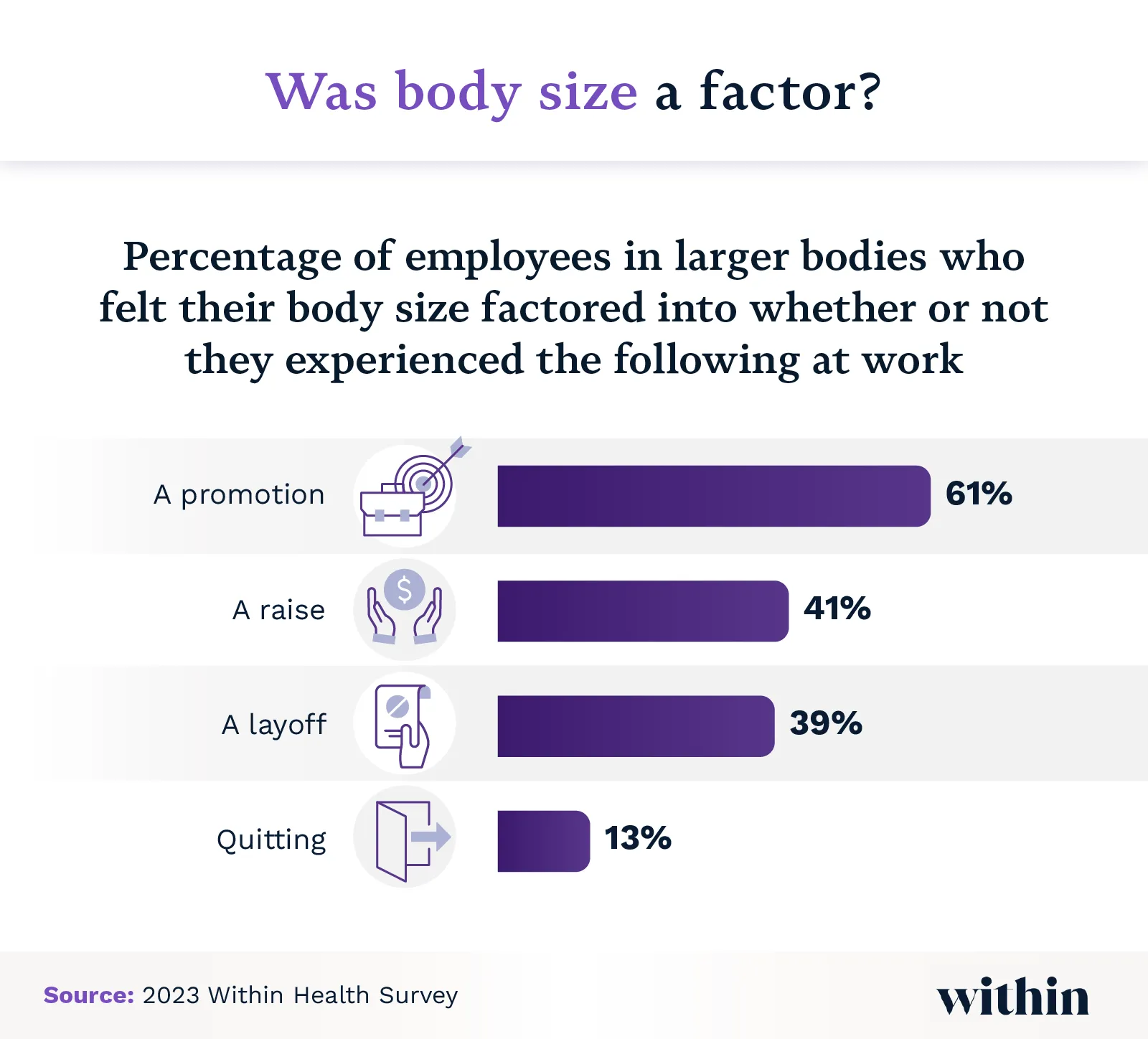
Body shaming is a very real and serious problem that can trigger anxiety, depression, body dysmorphia, eating disorders, and other mental health conditions.1 People body shame others for many reasons, but it’s often based on size. This type of hurtful bias sometimes happens in the workplace, leading to stress or unequal treatment. To look into body size discrimination at work, we surveyed over 1,000 employed Americans about their recent experiences.
Too much stress can lead to decreased productivity and unhealthy coping habits.2 And if someone is dealing with body size discrimination or worries at work, they may feel even more stressed than usual. Let’s see how employees are healthily managing stress.

Many respondents have used healthy ways to cope with or reduce stress, like listening to music (48%), exercising (42%), and meditating or reading (39%). We also discovered that employees in larger bodies were 10% more likely than other employees to maintain healthy stress management habits. More than 70% were also just as likely as other employees to be able to meet work deadlines consistently.
Interestingly, although therapy is a powerful tool for maintaining mental health, only 6% of workers said they use it.3 Many therapeutic approaches are out there to suit any need, and resources are available to help people find the right therapist for mental health struggles.4 Roughly 1 in 4 workers reported unhealthy habits for managing stress, such as overeating, undereating, and substance abuse.5 Therapy can help people learn how to manage stress better.
In addition to regular work stress, some people worry about how their colleagues see them. Remote workers were particularly concerned about this, as most reported feeling uncomfortable showing their entire body on a video call.

After pandemic restrictions tripled the number of people working from home, Americans have become no strangers to changes at work.6 What changes have workers experienced in the past year? Check out the differences by employee type below.

Our study results reveal that employees in larger bodies were 32% less likely than other employees to have been promoted in the last year. They were also 21% less likely to get a raise, and if they did get one, it was 7% less than what other employees received, on average. However, employees in larger bodies were less likely than others to quit (27% less) or get laid off (12% less). So, did respondents think their body size had anything to do with these changes?

Some respondents in larger bodies felt that their body size affected work decisions made by their bosses, leading 61% to feel like it made them miss out on a promotion. Nearly the same number of people felt they didn’t get a raise (41%) or were laid off (39%) because of a body size bias at work. And over 1 in 10 said their decision to quit their job was linked to their body. Quitting may be necessary when chronic workplace stress begins to affect health.7
Body size issues can affect people in the workplace, whether it’s because of outright discrimination, unspoken bias, or personal insecurities.8 This can increase stress and make it harder for some people to get ahead in their careers—especially since workers felt that their body size factored into the decisions behind their promotions and raises.
Managers and employees should recognize any biases they may hold against others based on body size and work to overcome them in order to improve their workplaces. At the same time, people need to focus on healthy coping strategies for managing stress and maintaining a healthy body image. A person may be unable to control their work environment, but nurturing mental health makes work a healthier place for everyone to thrive.
For this campaign, we surveyed 1,006 full-time employed Americans. Among them, 67% were men, and 33% were women; 33.5% of respondents reported as employees in larger bodies.
At Within Health, we help people find eating disorder treatment that works. We encourage body image restoration, intuitive eating, and self-love and acceptance to help you along your path to recovery.
If you found our study interesting, you’re more than welcome to share it with others who may benefit. We just ask that you link back to these findings and that your purposes are noncommercial.






Within is committed to providing accurate and up-to-date information on eating disorders and mental health.
Read our editorial policy.